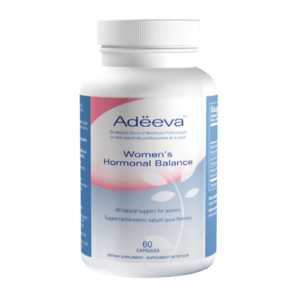
The Potential and Perils of Metformin: A Double-Edged Sword in the Fight Against Disease
Source: 13th International Conference on Alzheimer’s and Parkinson’s disease (Abstract 312), presented on March 29, 2017, and reviewed in the December 5, 2022, Medscape Article
Lifestyle Medicine Update (December 6, 2022)
Introduction:
Metformin, a staple in diabetes management, has garnered attention for its potential in cancer prevention and heart health. However, concerns have arisen regarding its link to neurological disorders like Parkinson’s disease and dementia. While studies show its efficacy in impeding cancer progression, recent research indicates its role in impairing mitochondria, raising concerns. Natural alternatives such as soy isoflavones, EGCG, curcumin, and lifestyle choices offer protective benefits without these risks. Embracing holistic approaches and lifestyle medicine is a promising path to well-being.
The Diabetes Wonder Drug with Unforeseen Consequences
Metformin, a household name in diabetes management, has earned its reputation as the go-to drug for type 2 diabetes. Beyond its blood sugar-lowering capabilities, it boasts a unique set of skills that makes it a contender in the realm of cancer prevention and heart health. For diabetics, it’s more than just a glucose regulator; it’s a potential shield against cancer development and cardiovascular disease. This wonder drug has sparked conversations about its broader use in the general population, especially after the age of 50. But beneath its impressive façade lies an unexpected twist, one that has raised concerns about its potential link to neurological disorders like Parkinson’s disease and dementia.
The Metformin Marvel: A Guardian Against Disease
Metformin’s efficacy extends far beyond glycemic control. It has emerged as a formidable opponent in the battle against several health challenges. Notably, it has shown prowess in impeding the progression of cancer, making it a beacon of hope for diabetics. Studies suggest that diabetics prescribed Metformin exhibit cancer rates nearly 30% lower than their counterparts who opt for other glucose-lowering medications. With cancer and heart disease dominating the leading causes of death, it’s not surprising that many physicians have advocated for Metformin use beyond diabetes management, heralding it as a preventive shield.
A Dubious Connection: Metformin and the Dark Side of Mitochondria
But, as with most medical marvels, there is often more than meets the eye. Over the past decade, studies have unearthed an unsettling revelation – Metformin’s role in undermining the energy-producing powerhouses of our cells, mitochondria. More specifically, it interferes with Complex I in the mitochondria, a crucial cog in the cellular energy generation machinery. The impairment of Complex I in mitochondria is a significant player in the development of Parkinson’s disease, a prevalent movement disorder affecting one in 600 people over 60. This impairment is intricately linked to exposure to certain pesticides, namely rotenone and paraquat, which inhibit Complex I in the mitochondria and significantly elevate the risk of Parkinson’s disease. Animal studies further validate this association, demonstrating that Complex I inhibitors can incite Parkinson’s disease-like symptoms in these creatures.
The grim revelation that Metformin follows in the footsteps of these pesticides led to a landmark study presented at the 13th International Conference on Alzheimer’s and Parkinson’s disease. The results, published in an eye-opening Medscape article titled “Metformin Use Linked to Increased Dementia, Parkinson’s Risk in Patients with Diabetes,” found that in a cohort of 9300 type 2 diabetes patients in Taiwan, the risk of developing Parkinson’s disease and dementia was more than doubled in those treated with Metformin compared to those treated with alternative glucose-lowering drugs. Even after accounting for all other risk factors, including those for dementia and Parkinson’s, the results remained unequivocal. “The cumulative incidences of Parkinson’s and dementia were significantly higher in our Metformin cohort at 12 years,” emphasized Dr. Kuan, one of the lead researchers behind the study. Moreover, the study disclosed a worrisome trend: higher dosages and extended Metformin use correlated with an even greater risk of Parkinson’s disease and dementia, particularly after 300 days of continuous use and doses exceeding 240 grams (2400 mg) per day.
The Dilemma: To Metformin or Not to Metformin?
This research carries significant weight, especially as some experts propose Metformin as a universal shield against cancer and heart disease. However, the newfound risk of dementia and Parkinson’s disease casts a long shadow of doubt over this once-venerated drug. To complicate matters further, Metformin’s suppression of the immune system, known for increasing the susceptibility to infections, adds to the equation. Hence, it becomes vital to explore alternatives that can offer similar protective effects against cancer and cardiovascular disease without the looming risks of Parkinson’s and dementia. And the good news is that such alternatives do exist.
Nature’s Armor: Natural Compounds for Disease Prevention
Soy isoflavones found in soy products and soy extract supplements, EGCG from green tea and green tea extract supplements, and curcumin, a polyphenol found in the spice turmeric and curcumin-containing supplements, have been identified as potential contenders in the battle against cancer and heart disease. They act as natural inhibitors, much like Metformin, but without the ominous shadow of neurodegenerative disorders. Aerobic exercise and caloric restriction, including intermittent fasting, offer additional strategies to thwart the mTOR pathway, which is closely tied to the risk of cancer and cardiovascular disease. These holistic approaches encompass a wide array of tools to safeguard health and longevity without the unsettling side effects associated with Metformin.
The Power of Natural Nutrition and Lifestyle Medicine
The journey towards well-being need not rely solely on pharmaceutical interventions. Nutrition and lifestyle medicine have proven time and again to be potent allies in the battle against various diseases. As the population ages and the debate over Metformin’s extended usage continues, it is crucial to remember that a treasure trove of options exists. This new approach to wellness should be embraced more broadly, ultimately finding its place in our conventional healthcare system. For those who seek to reduce their risk of cancer and heart disease without courting the shadow of Parkinson’s or dementia, the power of natural compounds, exercise, and dietary strategies holds the promise of a brighter and healthier future.
References:
- [Environmental Health Perspectives – Rotenone and Paraquat Linked to Parkinson’s Disease](https://www.ncbi.nlm.nih.gov/pmc/articles/PMC3114841/)
- [Frontiers in Endocrinology – Metformin-Induced Mitochondrial Complex I Inhibition](https://www.frontiersin.org/articles/10.3389/fendo.2018.00753/full)
- [Medscape – Metformin Use Linked to Increased Dementia, Parkinson’s Risk in Patients with Diabetes](https://www.medscape.com/viewarticle/877965#vp_2)
- [Harvard Health Publishing – Is Metformin a Wonder Drug](https://www.health.harvard.edu/blog/is-metformin-a-wonder-drug-202109222605#:~:text=For%20decades%20we’ve%20known,with%20diabetes%20lose%20excess%20weight.)
- [Cancer Management and Research – The Beneficial Effects of Metformin on Cancer Prevention and Therapy](https://www.ncbi.nlm.nih.gov/pmc/articles/PMC6497052/)
- [Anticancer Agents in Medicinal Chemistry – Updates of mTOR Inhibitors](https://www.ncbi.nlm.nih.gov/pmc/articles/PMC2980558/#:~:text=Besides%2C%20some%20natural%20products%2C%20such,to%20inhibit%20mTOR%20as%20well)
- [International Journal of Molecular Sciences – The Role of Curcumin in Modulation of Ageing](https://www.ncbi.nlm.nih.gov/pmc/articles/PMC6273643/)
- [Oxidative Medicine and Cellular Longevity – New Insights into the Role of Exercise in Inhibiting mTOR Signaling](https://www.ncbi.nlm.nih.gov/pmc/articles/PMC6186337/)
- [Cell Cycle – Calorie Restriction: Decelerating mTOR-Driven Aging from Cells to Organisms (including Humans)](https://www.tandfonline.com/doi/pdf/10.4161/cc.9.4.10766)
Eat Smart, Live Well, Look Great,
Dr. Meschino
These impressive findings have prompted some doctors to suggest that we all should take Metformin after the age of 50 to help reduce the risk of cancer and cardiovascular disease, the two leading causes of death in our society. However, evidence published within the past decade has also shown that Metformin inhibits the function of the cell’s energy factory, known as the mitochondria. More specifically, it inhibits the function of Complex I in the mitochondria, which is vitally important for cells to make the energy they require for normal functioning. Studies show that impairment of Complex I in the mitochondria is an important step in the development of Parkinson’s disease, which is the leading movement disorder, affecting one in 600 people over the age of 60. Exposure to pesticides, rotenone, and paraquat, which inhibit Complex I in the mitochondria is strongly linked to an increased risk of Parkinson’s disease. Animal studies have confirmed that Complex I inhibitors, including rotenone and paraquat, cause the development of Parkinson’s disease-like symptoms in animals.
Because Metformin also inhibits Complex I in the cell’s mitochondria, it was postulated by some researchers that, like certain pesticides, it may also increase the risk of Parkinson’s disease. These suspicions were realized in the research results presented at the 13th International Conference on Alzheimer’s and Parkinson’s disease (Abstract 312), presented on March 29, 2017, and discussed in a Medscape article published on December 5, 2022, entitled, “Metformin Use Linked to Increased Dementia, Parkinson’s Risk in Patients with Diabetes”.
In this study, researchers followed 9300 patients with type 2 diabetes in Taiwan for up to 12 years and found that the risk for Parkinson’s disease and dementia was more than double in the diabetics treated with Metformin, compared to the diabetic patients who were treated with other glucose-lowering drugs during the same period. The results remained unchanged after controlling for all other risk factors for dementia and Parkinson’s disease. As they stated, “The cumulative incidences of Parkinson’s and dementia were significantly higher in our Metformin cohort at 12 years” (Dr. Kuan). The study also showed that the higher the dosage and the longer the duration of Metformin use, the greater the risk of Parkinson’s disease and dementia, especially after 300 days of continuous use and doses higher than 240 grams (2400 mg) per day.
I believe these findings are very important because as the population ages some doctors are suggesting that we use Metformin to help prevent cancer and cardiovascular disease, even if we don’t have type 2 diabetes. But this study is suggesting that it may have the negative effect of increasing the risk for dementia and Parkinson’s disease. Furthermore, Metformin also depresses the immune system, which is associated with an increased risk for infections. So, it should interest you to know that some natural compounds work in a similar way as Metformin to reduce the risk of cancer and cardiovascular disease without increasing the risk of Parkinson’s disease and dementia or weakening the immune system. Some of these natural compounds include:
- Soy isoflavones (found in soy products and soy extract supplements)
- EGCG (found in green tea and green tea extract supplements)
- Curcumin (found in the spice turmeric and curcumin-containing supplements)
Also included on this list of cancer and cardiovascular protecting strategies is Aerobic exercise and caloric restriction (including intermittent fasting), which also inhibit the mTOR pathway linked to cancer and cardiovascular disease risk.
I’ve been tempted over the years to use the drug Metformin as an intervention to further reduce cancer and cardiovascular disease risk, but the evidence pointing to an increased risk of dementia and Parkinson’s disease from use of this drug has convinced me to continue to exclusively use only the more natural nutrition, exercise, and supplementation strategies I have employed thus far. In fact, some of these natural supplements and food constituents, as well as exercise and caloric restriction, are shown to also help to prevent Parkinson’s disease and dementia as well. Nutrition and lifestyle medicine is good medicine, and it needs to be featured more in our overall conventional healthcare system.
I have included the references for all this information in the text below.
References:
Spivey A. Rotenone and paraquat linked to Parkinson’s disease: Human exposure study supports years of animal studies. Environ Health Perspect. 2011; 119 (6): A259 https://www.ncbi.nlm.nih.gov/pmc/articles/PMC3114841/
Sherer TB et al. Mechanism of toxicity in rotenone models of Parkinson’s disease. J Neursci. 2002; 23 (34): 10756-10764. https://www.ncbi.nlm.nih.gov/pmc/articles/PMC6740985/
Metformin use linked to increased dementia, Parkinson’s disease risk in patients with diabetes. Medscape. Monday December 5, 2022. https://www.medscape.com/viewarticle/877965#vp_2
Fontaine E. Metformin-induced mitochondrial complex I inhibition: Facts, uncertainties, and consequences. Frontiers in Endocrinology (Dec 17, 2018) https://www.frontiersin.org/articles/10.3389/fendo.2018.00753/full
Is Metformin a Wonder Drug Harvard Health Publishing (September 29, 2021). https://www.health.harvard.edu/blog/is-metformin-a-wonder-drug-202109222605#:~:text=For%20decades%20we’ve%20known,with%20diabetes%20lose%20excess%20weight.
Saraei P et al. The beneficial effects of metformin on cancer prevention and therapy: A comprehensive review of recent advances. Cancer Manag Res. 2019; 11: 3295-3313. https://www.ncbi.nlm.nih.gov/pmc/articles/PMC6497052/
Natural Agents that Reduce Cancer and Cardiovascular Disease via mTOR pathway Inhibition similar to Metformin Cancer Prevention Effect:
Zhou H et al. Updates of mTOR inhibitors. Anticancer Agents Med Chem. 2010; Sept 1: 10 (7): 571-581 https://www.ncbi.nlm.nih.gov/pmc/articles/PMC2980558/#:~:text=Besides%2C%20some%20natural%20products%2C%20such,to%20inhibit%20mTOR%20as%20well
Huang C et al. Soy isoflavones regulate lipid metabolism through AKT/mTOR1 pathway in diet-induced obesity (DIO) male rats. J Molecules. 2016 May; 21 (5): 586 https://www.ncbi.nlm.nih.gov/pmc/articles/PMC6273643/
Bielak-Zmijewska et al. The role of curcumin in modulation of ageing. Int J Mol Sci. 2019; 29 (5): 1239 https://www.ncbi.nlm.nih.gov/pmc/articles/PMC6273643/
Agostini D et al. New insights into the role of exercise in inhibiting mTOR signaling in triple-negative breast cancer. Oxid Med Cell Longev. 2018: https://www.ncbi.nlm.nih.gov/pmc/articles/PMC6186337/
Blagosklonny MV. Calorie restriction: Decelerating mTOR-driven aging from cells to organisms (including humans). Cell Cycle. 2009https://www.tandfonline.com/doi/pdf/10.4161/cc.9.4.10766
Eat Smart, Live Well, Look Great,
Dr. Meschino
Recommended Supplements

Dr. James Meschino
ABOUT THE AUTHOR
Dr. James Meschino, DC, MS, ROHP, is an educator, author, and researcher having lectured to thousands of healthcare professionals across North America. He holds a Master’s Degree in Science with specialties in human nutrition and biology and is recognized as an expert in the field of nutrition, anti-aging, fitness, and wellness as well as the author of numerous books.






